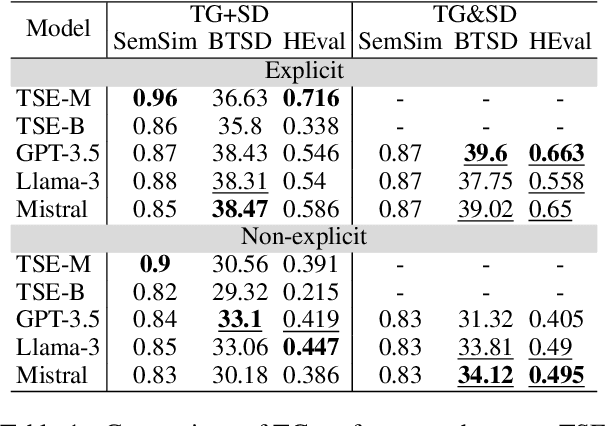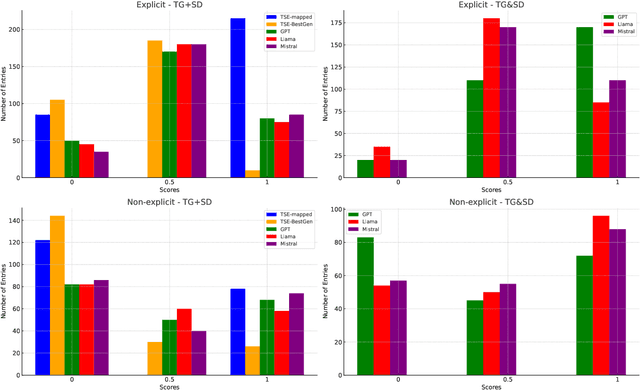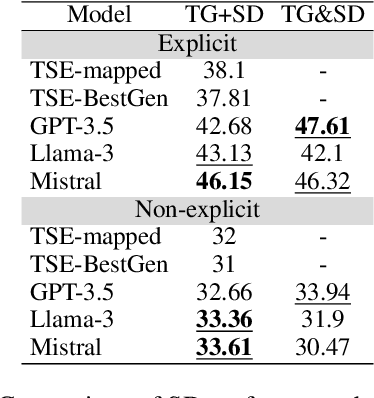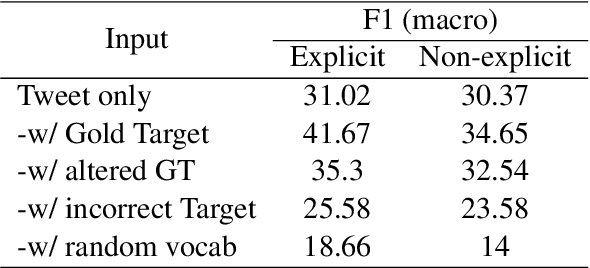Get our free extension to see links to code for papers anywhere online!Free add-on: code for papers everywhere!Free add-on: See code for papers anywhere!
Ahmed Fahmy
Can Large Language Models Address Open-Target Stance Detection?
Aug 30, 2024Figures and Tables:







Abstract:Stance detection (SD) assesses a text's position towards a target, typically labeled as "favor," "against," or "neutral." We introduce Open-Target Stance Detection (OTSD), where targets are neither seen during training nor provided as input. Evaluating Large Language Models (LLMs) like GPT-3.5, Llama 3, and Mistral, we compare their performance with the Target-Stance Extraction (TSE) approach, which has the advantage of using predefined targets. LLMs perform better than TSE in target generation when the real target is explicitly and not explicitly mentioned in the text. For stance detection, LLMs perform better in explicit scenarios but fail in non-explicit ones.
* 10 pages, currently under submission
Via
 Add to Chrome
Add to Chrome Add to Firefox
Add to Firefox Add to Edge
Add to Edge